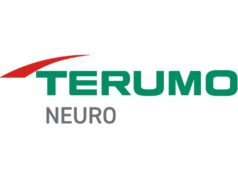
Mercy Life Flight Network and Samsung Neurologica have announced the debut of a mobile stroke unit (MSU) serving Northwestern Ohio, USA residents. This is the fourth unit of its kind in the USA.
The vehicle is on-call 24 hours a day, and is staffed with a critical care nurse, a paramedic and a computed tomography (CT) technologist. The vehicle contains a CereTom mobile CT scanner (Samsung Neurologica).
Within the first three weeks of operation, the MSU received 29 calls and treated 10 patients, one of them with a tissue plasminogen activator.
The CereTom CT scanner provides scan uploads to specialists at the hospital in less than two minutes, according to a press release. Of the 10 patients the unit was dispatched to treat in the inaugural weeks of operation, nine received CT scans on the scene.
“The key to stroke care is determining what kind of stroke is occurring, whether it’s haemorrhagic or ischaemic,” says Julie Goins-Whitmore, Mercy Health MSU program manager. “Performing the scan out in the field quickens the diagnostic process, which is critical to starting the right treatment as soon as possible. It’s also a huge relief for patients and their families to have a much better idea of what’s happening before the MSU even leaves their driveways.”
The MSU was co-developed by Stryker, Frazer and Samsung NeuroLogica, funded with a US$1 million grant from the Mercy Foundation. It was brought online in partnership with the Lucas County Commissioners and the City of Toledo to address new emergent stroke-care protocols. Lucas County sees a higher proportion of patients 45 years and younger suffering from strokes compared to the national average.
The CereTom is an eight-slice, portable CT scanner that delivers high-quality scans in a variety of patient locations, according to a press release. It is designed for use in a variety of settings including the MSU, ICU, NICU, emergency department and in patient rooms. For stroke patients, the CereTom-based MSU has been shown to reduce time-to-treatment for patients, as well as hospital length of stay.










